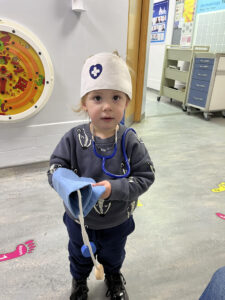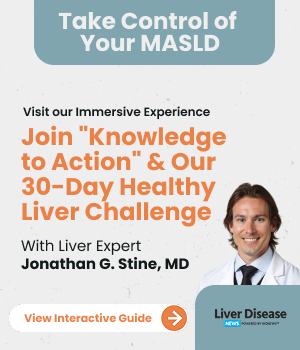Navigating the unknowns after a diagnosis of PFIC
Especially with type 3 of this liver disease, questions can abound

One difficult thing about a rare disease is that there are so many unknowns, and it’s not always obvious where the answers can be found. Our baby daughter, Eva, was diagnosed in 2021 with a rare liver disease called progressive familial intrahepatic cholestasis (PFIC), and the following weeks, months, and years were full of questions.
Among our wonderings: Will she need a liver transplant? When might she need one? Will her growth continue to be stunted? How will the disease affect her development? Will she be able to go a nursery or school? Can we risk having more children if they could have the disease?
PFIC is thought to affect 1 in 50,000-100,000 people. More than six diseases are within the umbrella term PFIC, and each of them behaves differently; Eva’s specific illness is PFIC type 3. We live in rural Herefordshire, England, and are likely the only family with PFIC in the area. Every local doctor we’ve met hadn’t heard of the disease, and why would they have?
We’re grateful that Eva is under the care of a hepatologist at Birmingham Children’s Hospital, and although it’s a three-hour round trip from our home, the team there is able to provide advice, support, and answers to both us and our local hospital. Eva is also under the care of additional specialists, including ophthalmologists and dietitians, to monitor the wider impact that PFIC can have on the body.
Some answers, but uncertainty remains
Time has provided answers to some of our questions, and over the past three years, Eva’s liver has responded well to ursodeoxycholic acid, a liver disease treatment that’s been found to decrease cholestasis symptoms. She has a moderate to mild form of the disease, we’re told, but at present, a liver transplant would be the only cure for her.
New medications are coming to the market that should buy her more time with her own liver. Odevixibat (sold under the brand name Bylvay) is a PFIC treatment, for instance, but it’s unknown if it can help those with type 3, like Eva. A gene therapy for type 3 is under development, though, which would replace faulty PFIC genes with healthy copies. If successful, this treatment would cure the disease without a transplant. It’s a great source of hope for our family.
Six months after Eva was diagnosed, we had an appointment with a genetic counselor. I wasn’t sure what to expect from the appointment, but it was one of the most informative we’ve had.
Both my husband, Justin, and I have mutations on the ABCB4 gene, although they’re different; mine hadn’t been recorded in medical literature. We were told that being a carrier of PFIC type 3 can impact health and were advised that our wider family should be tested to see if they also carried the mutation, which would require annual liver monitoring.
Since we were keen for Eva to have a sibling, the genetic counselor explained that any future children we conceive naturally would have a 25% chance of having PFIC type 3, a 50% chance of being a carrier, and a 25% chance of being unaffected by the mutation.
We were given two reproductive options to reduce the likelihood of having another child with the disease. The first was natural conception, but with a blood test to diagnose the fetus at nine weeks of gestation. We would then have the option to terminate the pregnancy if we decided not to move forward.
The second was in vitro fertilization, with a preimplantation genetic diagnosis (PGD IVF) to determine if embryo(s) had PFIC type 3 or was a carrier. We felt the latter was the best option for our family, but there was one major obstacle: PGD IVF had never been undertaken for type 3 in the United Kingdom, and it’s not licensed by the National Health Service. More on this process in my next column!
The final place we found a wealth of information, a sense of community, and a drive to improve the lives of those affected by PFIC was the PFIC Advocacy & Resource Network. In it, caregivers, patients, staff, and medical professionals have united to make a huge impact on the PFIC community. Overall, the network’s main benefit has been the people’s warmth and ability to relate to caregiving for a child with PFIC. It helps to know that they’re always at the end of an email to provide support in the darkest of times.
If you’re newly diagnosed or care for someone who is, do reach out to the network. It’ll help you navigate the world post-diagnosis.
Note: Liver Disease News is strictly a news and information website about the disease. It does not provide medical advice, diagnosis, or treatment. This content is not intended to be a substitute for professional medical advice, diagnosis, or treatment. Always seek the advice of your physician or other qualified health provider with any questions you may have regarding a medical condition. Never disregard professional medical advice or delay in seeking it because of something you have read on this website. The opinions expressed in this column are not those of Liver Disease News or its parent company, Bionews, and are intended to spark discussion about issues pertaining to liver disease.










Ann Sutton McCarthy
A well written and informative article. ..which pulls on the heartstrings.Fingers crossed that gene therapy is a solution . We love you, Sophie, and all that you do, you are a wonderful kind caring passionate human being ❤️